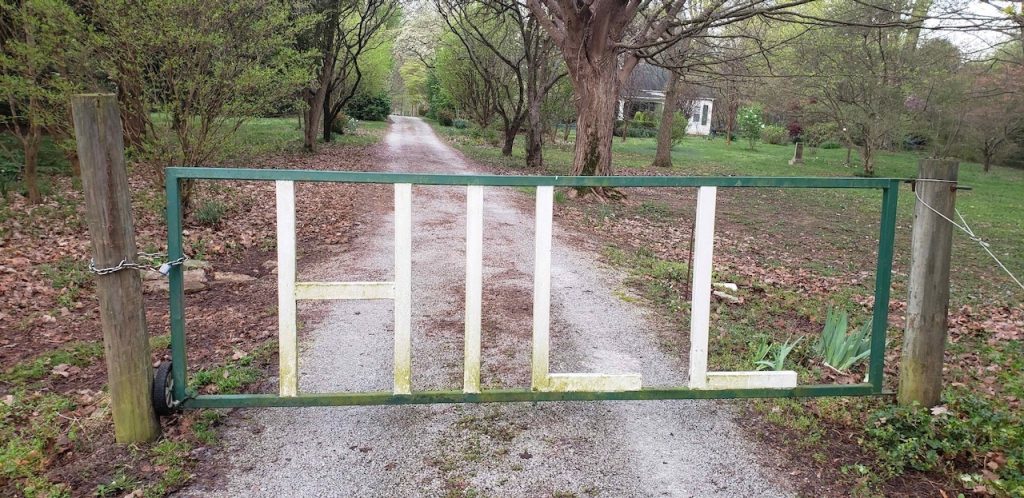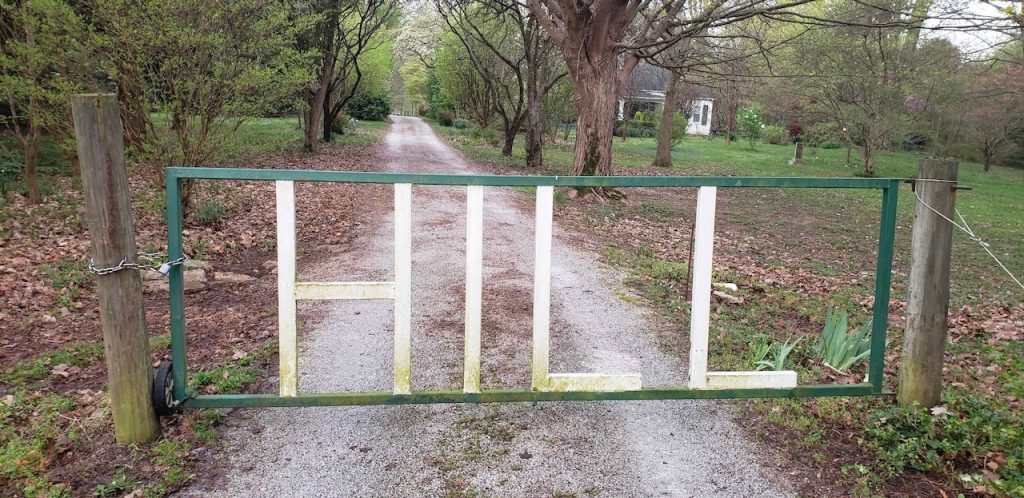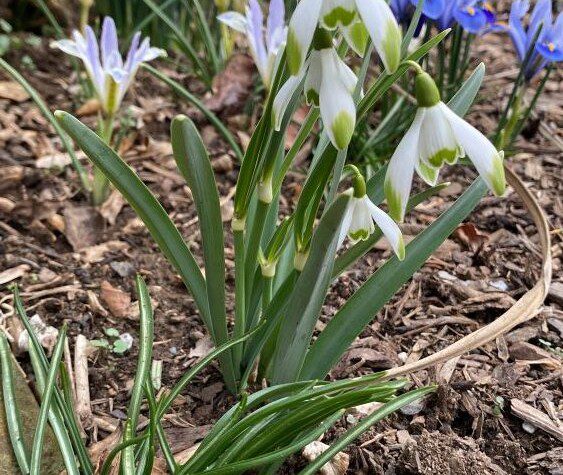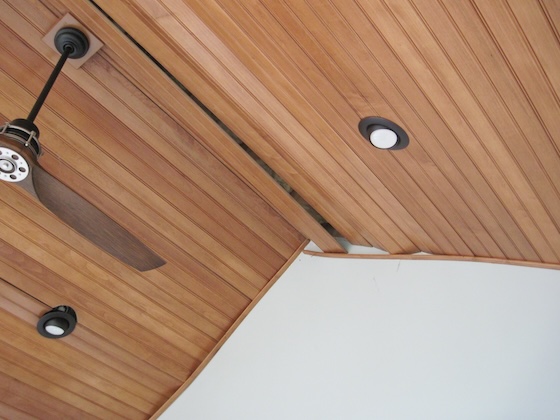


Folks around here have taken to calling it the “Boxwood Winter.” Named for that fabled Dec. 23, 2022 day when we were all waiting for Santa Claus and an artic blast flew in instead dropping the temperatures 50 degree in twelve hours.
Heavy winds. Sub-zero readings. Frozen rain. Death or serious injuries to our all too familiar boxwoods. Millions of them across the Midwest and Upper South unable to deal with such Christmas wind shear. More than 200 cultivars. The landscaper’s best friend. Burned, bent and broken.
Even now in July you can still see the injured in borders everywhere. Banks. Schools. Churches. Fast-food drive-ins. Shopping centers. Worst of all are the front yards of optimists who still believe those sickly, yellow-brown patches can be resuscitated. Just give them some time.
Ho. Ho. Ho.

Looking into the battered heart of a fading boxwood
I gave up about a month ago. At first I was leaning toward trying to save the minimally damaged, figuring I could live with some dead spots in a broad landscape – and maybe they still might pull off a Lazarus. Then I thought: “What the hell, I’m already 80. How much wait time do I have left?”
We dug out all 42 of our boxwoods in all sizes, shapes and ages, and not all of them injured. It was an off-with-all-their-heads moment. I did not want to replace those boxwoods with boxwoods, thinking, with global warming evidence from around the world sitting right in our laps, I didn’t want to go through this again.
The first 22 to go were in an area called “Janet’s Garden,” a tidy, well-manicured circle of horticultural charm in our eight acres of random chaos. Those dwarf boxwoods – planted about 20 years ago – had tightly surrounded the base of a bubbling fountain; their placement useful, functional but, OK, a little boring.
I didn’t fully figure how dull until I began looking for very-winter-hardy replacements. When in doubt, as we plant experts say, GOOGLE it up, and here came under “winter-tough, low growing shrubs” your Aronia melanocarpa ‘Ground Hog.’

Aronia ‘Groundhog’ and red cardinal flowers
Ground Hog. Great name for a low shrub happy in dirt. It was advertised as coming with white flowers and shiny green leaves that turned shades of red and orange in fall. Probably not one to be found at the base of a fountain at Longwood Gardens. Yet an aggressive grower, sure to need constant pruning, but totally hardy.
And different.
Once the new ground hogs were in hand our 22 wounded box woods were replaced in about six hours.
And forgotten.
Next to go were three vertical boxwoods and five rounded ones just out the side door. They had been growing in what’s become too much shade. They had blocked off our view of a floriferous side yard. One of them was pretty much a dead yellow.

Feisty tuberous begonias
Their removal opened up the area, providing space for the planting of some feisty begonias while allowing (mandating) the removal of a tall skinny cryptomeria. The boxwood dismissal also allowed for the resurrection of a small, raised-bed rock garden I had forgotten was even there.
What a difference. Light. Air. Visibility. Vision. Feisty begonias. Renewed rock garden. Thirty boxwoods down and out and twelve to go. This was all beginning to make sense.
The next six boxwoods out were along the sidewalk leading to the driveway. I don’t even remember why I planted them, Maybe because real gardeners are always planting boxwoods along sidewalks.
The plants had become tall, gawky and a pain-in-the-aesthetic. It soon became apparent they had been covering up a view of our weeping redbud, a variegated viburnum and a beautiful day lily named for an old gardening buddy of many Louisville-area people, Fred Wiche.
Boxwoods gone. Removed. Composted. Welcome home Fred. Their displacement also opened up more room for a beautiful arbor with a flowering vine hiding behind the boxwoods.

‘Fred Wiche’ daylily. Richard Hopkins photo.
The last boxwoods to go came with some domestic discussion with Janet Hill, my garden partner for 60 years. We live in an 1860s farmhouse with a broad columned front porch. Many years ago I lined that sidewalk leading to the porch with boxwoods because that’s what real gardeners did. After that I came across a wonderful arborvitae, ‘Morgan’, with alleged purple-bonze-orange color while topping out at three-to-four tall.
Loved the color but ‘Morgan’ did not get the height memo.
My hope was the green boxwoods would shine closer to the front porch sidewalk, the shorter Morgans partnering beside them. Fast-forward twenty years. The boxwoods and Morgans are all at least six-to-eight feet tall. We could no longer see the front porch, which, incidentally, was fronted by deep green hostas at least 75 years old offering beautiful blue flowers on three-foot scapes. All lost in our landscape.
Janet was thinking that we have enough gardens crammed around the house. Let’s give our porch some space, a view of its own from inside out. The same for visitors coming in from out.

Janet and Bob Hill have been married for 60 years and gardened in their Utica, Indiana garden for 48 years. The durable Hosta ventricosa came with the place.
Following a brief discussion, and a guy with a chain-saw, all arborvitaes and boxwoods bit the dust in about 15 minutes, opening our porch to that needed space, history and hosta in no particular order.
So all 42 of our boxwoods are now gone. Replaced by things and spaces new, different and better. No counseling required. No Boxwood Winter melancholy. Just moving on. At 80. It’s called gardening.
Boxwood Winter originally appeared on GardenRant on July 22, 2023.
The post Boxwood Winter appeared first on GardenRant.





More Stories
Why Should We Think About Our Winter Gardens Right Now?
5 Reasons You Need Snow Removal Services
Green Industry Veteran Nick Jiannas Joins Kress Commercial